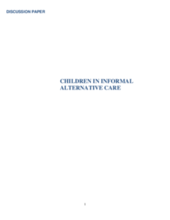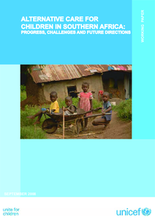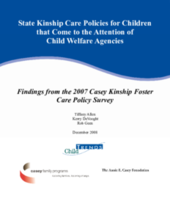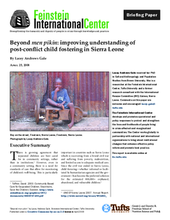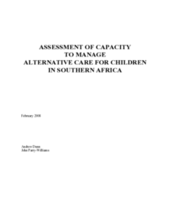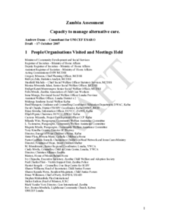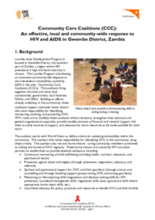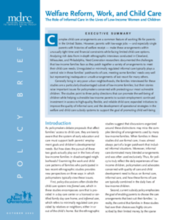Displaying 61 - 70 of 72
This paper paves the way to ensuring that challenges faced by informal caregivers are addressed in a manner that will make them more supportive to orphans.
This paper, 'Children in Informal Care', was produced in response to a knowledge gap on informal care and to help determine the relevance and applicability of the 2009 Guidelines for the Alternative Care of Children to informal alternative care. The authors asked the questions “what constitutes ‘informal care’?”, “what forms of informal care are there?”, “who needs informal care?”, and “can they be clearly defined?”
This paper is based on The Latin American Report: The situation of children in Latin America without parental care or at risk of losing it. Contexts, causes and responses, which was prepared using reports from 13 countries in the region. The paper gives an overview of the state of one of the most fundamental rights - the right to parental care, a keystone for the right to live in a family and a community.
This report, prepared for UNICEF East and Southern Africa Regional Office (ESARO) assesses the capacity in Malawi, South Africa, Swaziland and Zambia to manage alternative care systems for children.
Explores the disparity in support given to children in formal foster care in the United States compared to those in informal kin arrangements
Examines the challenges posed in monitoring and ensuring child protection in informal and formal fostering in post-conflict areas.
This report, prepared for UNICEF East and Southern Africa Regional Office (ESARO) assesses capacity of Malawi, South Africa, Swaziland and Zambia to manage alternative care systems for children.
Country level evaluation of contributing factors to the establishment of an alternative care system.
Short document outlining the constitution, role, and work of community care coalitions in Gwembe District, Zambia. Includes lessons learned and recommendations.
Analyzing rich data from in-depth ethnographic interviews conducted in Cleveland, Milwaukee, and Philadelphia, Next Generation researchers documented the challenges that low-income families face as they patch together a variety of arrangements to meet their child care needs.

